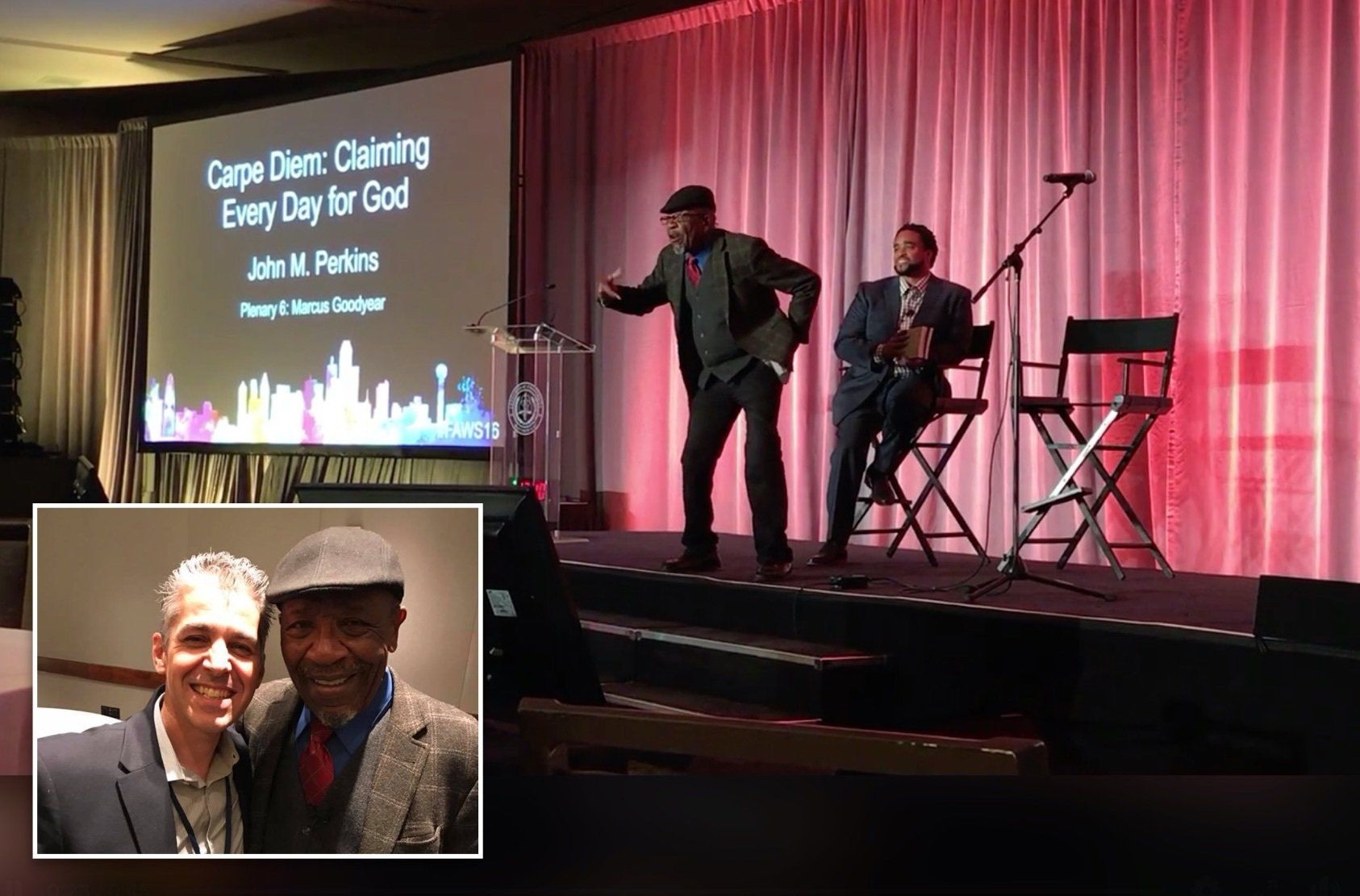COVID, Racism, Riots, and Politics: BLM (Part 2)
In 2016 I had the privilege of meeting civil rights leader, John M. Perkins in Dallas, TX at a Faith @Work Conference. Some of my favorite quotes from him during his talk and subsequent “fireside chat” are worth repeating:
- Leadership is seeing the pain of others and redeeming it...turning it into their passion.
- I want to preach a gospel stronger than my ambition...stronger than my success.
- Embracing the future means embracing each other.
- If you live for yourself you are dead while you’re living.
- No virtue is higher than friendship…we need to develop everyday language of love.
- When we say ‘all lives matter’ in response to ‘black lives matter’ we haven’t heard the question.
That final statement makes some people smile and others frown. Partly because there’s a misunderstanding between “Black Lives Matter” as a movement (BLM) and “Black lives matter” as a statement. The two are not the same. The BLM movement is offensive to many Christians due to unchristian organizational values and beliefs. But the statement at face value should offend no one. Saying that “Black lives matter” is simply highlighting a problem America has grappled with since signing the Declaration of Independence. While “all lives matter” is certainly true, it turns attention away from all the problems stemming from racism/prejudice, injustice, and lack of equal opportunities for all. We don’t say “Happy Father’s Day” when celebrating Mother’s Day to make sure fathers don’t feel left out. So it is with “Black lives matter.” Stating this sentiment is not minimizing the fact that all lives matter—it’s simply focusing on those who have suffered injustice. So remember, when many people make this statement, they are not necessarily agreeing with the organization by the same name; they are only trying to bring attention to problems in our country like the unjustifiable death of George Floyd.
For those who are strong proponents of the statement—“Black lives matter”—it may be helpful to know that many Americans agree with the idea. They have no underlying resentment toward people of color (POC), but it puts them on edge since it seems to be a form of finger pointing toward those who don’t follow a certain political agenda. To be told that one is racist and uncaring because they don’t state that phrase or post it on social media does not advance the conversation, nor is it true. It’s important for both those who embrace the statement and those who do not promote it to come to the table and dialogue about the concept. Otherwise ongoing misrepresentation of both sides will continue—like ships passing each other in the night—and we’ll continue to see escalation of racial tensions rather than move toward resolution.
Let me close this post by recommending one of my favorite books on the race issue—One Blood (Parting Words to the Church on Race and Love) by John M. Perkins. He does an excellent job of pointing a way forward—the way of justice and reconciliation. I love the way Marie Gregg puts it: “Perkins pleads with his readers, black, white and every other skin shade under the sun, to understand that racial barriers are false. Man-made. Slipped into the historical narrative as a way of justifying unjustifiable prejudice and hatred. We are all truly one people, one blood.” (https://mlsgregg.com/2018/05/21/review-one-blood/)
Perkins argues that race as commonly understood does not exist. From the unified perspective of biology, history, and Scripture, there is only one human race. Unity and diversity are sown into both the very fabric of creation and the essential nature of the family of God (Chapter 1). Based on scriptural testimony and scientific evidence, we must accept that there is only one race, the human race that is bound together by one blood (Chapter 2). We must lament the brokenness of our past as a crucial part of our journey back to God’s vision for the church (Chapter 3). We must confess our sins, both individually and corporately (Chapter 4), and forgive one another by the power of the Holy Spirit (Chapter 5). We must practice repentance and tear down the walls separating us from one another (Chapter 6). And we must do this work with resolve and commitment, following the example of heroes who were willing to risk all for the cause of reconciliation (Chapter 7). We must pray, recognizing the reality of spiritual warfare and refusing to fight this fight with man-made solutions, which will only fail (Chapter 8). And finally, we must fix our eyes on the greatest motivator of all—the unconditional love of Jesus, which is experienced most powerfully in mutually supportive friendships (Chapter 9). [SOURCE: https://www.christianitytoday.com/ct/2018/april-web-only/john-perkins-one-blood-duke-kwon.html]
Feedback? Thoughts? Please email them to luke@lukekuepfer.com.














